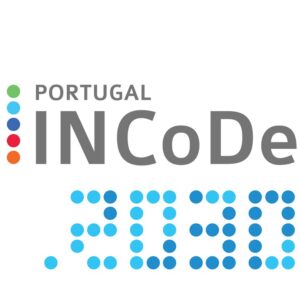Understanding Portugal’s Strategic Approach to Artificial Intelligence
Portugal stands at the forefront of artificial intelligence adoption in Europe, with 35% of Portuguese companies having adopted AI technologies by 2023, representing a 25% growth rate in just one year compared to 28% in 2022. As businesses navigate this rapidly evolving landscape, understanding Portugal’s comprehensive AI policy framework becomes crucial for strategic planning and compliance. The Portugal Tech Hub provides essential guidance for companies looking to leverage these opportunities in the Portuguese market.

The Portuguese government has positioned AI as a cornerstone of its digital transformation agenda, developing a multifaceted approach that balances innovation promotion with regulatory oversight. This strategic vision encompasses national initiatives, EU compliance requirements, and specific sectoral guidelines that directly impact how businesses can develop, deploy, and benefit from AI technologies.
The National AI Strategy: Portugal INCoDe.2030 and AI Portugal 2030

Portugal’s journey toward AI leadership began with the launch of the AI Portugal 2030 strategy in 2019, coordinated by the Portugal INCoDe.2030 initiative. The National AI Strategy, published in 2019, aims to promote and mobilize society in general, for teaching and research, for innovation and development of products and services supported by AI technologies.
The strategy operates under three fundamental pillars that businesses should understand:
1. Research and Innovation Excellence The strategy emphasizes strengthening Portugal’s position in AI research through collaborative laboratories (CoLabs) and Digital Innovation Hubs (DIHs). For businesses, this translates into opportunities for partnerships with academic institutions and access to cutting-edge research capabilities.
2. Talent Development and Skills Enhancement Portugal recognizes that AI adoption requires a skilled workforce. The strategy includes comprehensive training programs, from introducing machine learning fundamentals to young students through Ciência Viva Clubs to advanced professional development initiatives. Companies can leverage these programs to upskill their workforce and access a growing pool of AI-literate professionals.
3. Infrastructure and Digital Capabilities Portugal is a Participating State in EuroHPC and contributes to its European infrastructure, namely through “Deucalion”, one of the supercomputers in the National Advanced Computing Network, and through “Mare Nostrum 5”. This infrastructure investment provides businesses with access to high-performance computing resources essential for AI development.
The New Agenda Nacional de Inteligência Artificial (2025)
Building on the foundation of AI Portugal 2030, the government is launching a comprehensive new AI agenda in 2025. The National AI Agenda will be presented in early 2025 and marks a decisive step in creating a robust and innovative artificial intelligence ecosystem in Portugal.
The new agenda introduces several key initiatives that businesses should monitor:
AMALIA: Portugal’s Large Language Model Development of AMALIA: The first Portuguese Large Language Model (LLM), named AMALIA, with launch scheduled for 2026, which aims to position Portugal at the forefront of language technology in Portuguese. This represents a significant opportunity for Portuguese businesses to access AI capabilities specifically tailored to the Portuguese language and cultural context.

AI Factory Initiative Portugal will establish a dedicated AI Factory to support development and testing of AI solutions. This facility will provide businesses, particularly SMEs and startups, with resources to prototype and scale AI applications in a controlled environment. Companies seeking technology consulting in Portugal can leverage these facilities to accelerate their AI development initiatives.
Enhanced Computing Infrastructure The government is investing in advanced computing capacity to support AI development projects, ensuring businesses have access to the computational resources necessary for sophisticated AI applications.
EU AI Act: Compliance Requirements for Portuguese Businesses
The European Union’s AI Act, which entered into force on August 1, 2024, represents the world’s first comprehensive regulatory framework for artificial intelligence. The AI Act is the first-ever legal framework on AI, which addresses the risks of AI and positions Europe to play a leading role globally. Portuguese businesses must understand and prepare for its phased implementation.
Risk-Based Classification System
The AI Act establishes four risk categories that determine compliance requirements:
1. Unacceptable Risk (Prohibited)
- Social scoring systems
- Cognitive behavioral manipulation
- Biometric identification in public spaces (with exceptions)
- AI systems that exploit vulnerabilities of specific groups
2. High-Risk Systems These require extensive compliance measures and include:
- AI in critical infrastructure
- Educational or vocational training systems
- Employment and worker management
- Essential private and public services
- Law enforcement applications
- Migration and border control
- Administration of justice
High-risk systems will face strict requirements, including around risk assessment, data quality, documentation, transparency, human oversight, and accuracy.
3. Limited Risk Systems like chatbots must meet transparency obligations, ensuring users know they’re interacting with AI.
4. Minimal Risk Most AI applications fall into this category and face no additional obligations beyond existing laws.
Implementation Timeline
Businesses must prepare for the following key dates:
- February 2, 2025: Prohibitions and AI literacy obligations became applicable
- August 2, 2025: Governance rules and obligations for General-Purpose AI models
- August 2, 2026: Full applicability of the AI Act
- August 2, 2027: Extended deadline for high-risk AI systems embedded in regulated products
Penalties for Non-Compliance
The AI Act introduces significant penalties that Portuguese businesses must take seriously:
- Using prohibited AI practices outlined in Article 5 can result in fines of up to €40 million, or 7% of worldwide annual turnover – whichever is higher
- Non-compliance with data governance requirements: up to €20 million or 4% of global turnover
- Other violations: up to €10 million or 2% of global turnover
National Regulatory Framework and Authorities
Portugal is establishing a comprehensive governance structure to oversee AI implementation and ensure compliance with both national and EU requirements.
Designated Supervisory Authorities
Under Article 77 of the AI Act, EU member states must prepare and publish a list of the authorities designated to supervise compliance with European Union legislation that safeguards fundamental rights. Portugal has designated several authorities, including:
- ANACOM (National Communications Authority): Coordinating role for AI supervision
- CNPD (National Data Protection Commission): Data privacy aspects of AI
- Energy Services Regulatory Authority (ERSE): AI in energy sector
- Sector-specific regulators for healthcare, finance, and other industries
ANACOM has been assigned the role of coordinating the activities of all other designated national authorities, making it the central point of contact for businesses seeking guidance on AI compliance.
Regulatory Sandboxes

According to Article 57 of the AI Act, each Member State must establish at least one AI regulatory sandbox at the national level by 2 August 2026. Portugal’s approach includes:
Free Zones for Technology (ZLT) General principles have been established for the creation and regulation of Free Zones for Technology (FZTs). FZTs are physical spaces to support the demonstration and testing of new technologies, through the creation of specific and adapted regulatory regimes.
These zones will allow businesses to:
- Test AI solutions in real-world conditions
- Operate under adapted regulatory frameworks
- Collaborate with regulators to ensure compliance
- Accelerate innovation while managing risks
Sector-Specific Considerations
Different industries face unique AI policy requirements in Portugal:
Financial Services
Banco de Portugal and the CMVM have issued guidance on AI governance, emphasizing transparency, human oversight and suitability assessments, particularly in credit scoring and robo-advisory services. Financial institutions must ensure AI systems used for creditworthiness assessments meet high-risk system requirements under the AI Act. Fintech companies in Portugal must pay particular attention to these evolving requirements.
Healthcare
Portugal has implemented several AI initiatives in healthcare, including digital symptom evaluators and AI-assisted dermatological diagnosis tools. Healthcare AI applications must comply with medical device regulations and ensure patient data protection under GDPR. The digital transformation of healthcare requires careful navigation of these regulatory requirements.
Public Sector
The government promotes AI adoption in public administration through initiatives like LabX and InnoLabs. The Mosaico platform provides a model for designing and developing digital public services centered on citizens and businesses.
Data Protection and AI Ethics
Portuguese businesses must navigate the intersection of AI policy and data protection law:
GDPR Compliance
AI systems processing personal data must comply with GDPR requirements, including:
- Lawful basis for processing
- Data minimization principles
- Rights of data subjects
- Data protection impact assessments for high-risk processing
Organizations implementing AI solutions should ensure robust cybersecurity measures are in place to protect both the AI systems and the data they process.
Ethical Guidelines
In December 2020 the Agency for Administrative Modernisation (AMA) has launched a guide (in beta version) for ethical, transparent and responsible AI. Key principles include:
- Transparency and explainability
- Fairness and non-discrimination
- Human oversight and control
- Security and safety
- Accountability
Charter of Human Rights for the Digital Age
Portugal has approved a Charter of Human Rights for the Digital Age: Law 27/2021. Article 9 states that the use of artificial intelligence and robots should be guided by respect for fundamental rights.
Opportunities and Support for Businesses
Portugal offers numerous opportunities for businesses to leverage AI:
Funding and Incentives
- Access to EU Digital Europe Programme funding
- National innovation vouchers and grants
- Tax incentives for R&D activities
- Support through COMPETE 2030 program
Software development companies in Portugal can particularly benefit from these funding opportunities when developing AI-powered solutions.
Collaboration Networks
Extending collaborative laboratories (CoLabs) and Digital Innovation Hubs (DIHs) provides businesses with:
- Access to research expertise
- Technology transfer opportunities
- Shared infrastructure and resources
- International collaboration networks
International Partnerships
Portugal participates in several international AI initiatives:
- AI4EU platform
- European AI excellence centers
- EuroCC project on high-performance computing
- Bilateral programs with leading tech nations
These partnerships create opportunities for tech startups in Portugal to access international markets and collaborate with global AI leaders.
Practical Steps for Business Compliance
To align with Portugal’s AI policy framework, businesses should:
1. Conduct AI System Inventory
- Identify all AI systems in use or development
- Classify systems according to EU AI Act risk categories
- Document intended purposes and deployment contexts
2. Implement Governance Structures
- Appoint AI compliance officers
- Establish oversight mechanisms
- Create documentation procedures
- Develop incident response plans
3. Ensure Technical Compliance
For high-risk systems:
- Implement risk management systems
- Ensure data quality and governance
- Maintain technical documentation
- Enable human oversight capabilities
- Conduct conformity assessments
4. Address Transparency Requirements
- Inform users when interacting with AI systems
- Provide clear explanations of AI decision-making
- Enable opt-out mechanisms where applicable
- Maintain audit trails
5. Leverage Support Resources
- Engage with ANACOM and sector regulators
- Participate in regulatory sandboxes
- Access Digital Innovation Hubs
- Utilize government training programs
Future Outlook and Strategic Considerations
Portugal’s AI landscape continues to evolve rapidly. The objective is to ensure that, by 2030, the country is recognized as a responsible leader in AI, combining technological progress with social well-being.
Key trends businesses should monitor include:
Increased Investment in AI Infrastructure Companies in Portugal have increased their investments in digital technology by 61% since September 2022, representing a ten-percentage point increase above the European average.
Growing International Connectivity Portugal’s strategic location and submarine cable infrastructure position it as a data hub connecting Europe, Americas, and Africa, creating opportunities for AI-driven businesses. This connectivity advantage particularly benefits cloud computing services and data center operations in Portugal.
Skills Development Acceleration Continued investment in AI education and training will expand the talent pool available to businesses.
Regulatory Evolution As AI technology advances, expect regular updates to regulatory frameworks and guidance from authorities.
Conclusion
Portugal’s AI policy framework represents both an opportunity and a responsibility for businesses. The combination of supportive national strategies, EU regulatory requirements, and growing infrastructure investments creates an environment where responsible AI innovation can thrive.
Success in this landscape requires businesses to balance innovation with compliance, leveraging available support mechanisms while preparing for evolving regulatory requirements. By understanding and aligning with Portugal’s AI policy framework, businesses can position themselves to harness AI’s transformative potential while contributing to Portugal’s vision of becoming a responsible AI leader in Europe.
For businesses operating in Portugal, the message is clear: AI adoption is not just encouraged but strategically supported through comprehensive policies, infrastructure investments, and collaborative ecosystems. The key lies in navigating this framework thoughtfully, ensuring compliance while maximizing the opportunities that Portugal’s forward-thinking AI strategy provides. Companies seeking expert guidance can benefit from specialized IT services to ensure successful AI implementation and compliance.
